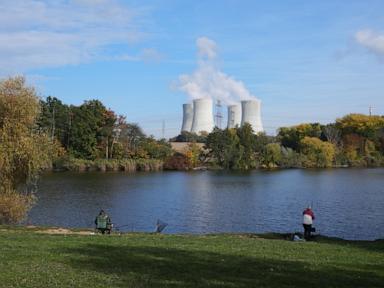
The Czech Republic is advancing its energy strategy with a significant investment of $19 billion aimed at expanding its nuclear power capabilities. Plans involve the construction of two new reactors at the Dukovany Nuclear Plant, which is expected to double the country’s nuclear output by the 2030s. This initiative positions the Czech Republic among Europe’s leading nations in nuclear energy reliance.
Currently, mobile drilling rigs are conducting geological surveys at the site, drilling up to 140 meters underground to ensure the area can support the new facilities. The Korea Hydro & Nuclear Power (KHNP) has secured the contract to build the reactors, which will each generate more than 1,000 megawatts. This construction will complement the existing four reactors at Dukovany, which were established in the 1980s.
The Czech government’s decision to proceed with this nuclear expansion is driven by multiple factors, including the need to reduce reliance on fossil fuels, maintain steady electricity supplies, and meet future energy demands. According to Petr Závodský, chief executive of the Dukovany project, nuclear energy is projected to account for between 50% and 60% of the country’s energy mix by 2050.
The project is critical for ensuring a reliable energy supply as the nation transitions away from coal, which currently contributes to roughly 40% of its electricity generation. Závodský noted, “Today, we get some 40% electricity from nuclear, but we also currently get another 40% from coal. It’s clear we have to replace the coal.”
As energy demands surge and countries face strict carbon reduction targets, interest in nuclear technology is resurging across Europe. The European Union recently classified nuclear energy as an environmentally sustainable activity, facilitating financing opportunities. This shift has been beneficial for nuclear-dependent countries like the Czech Republic, Slovakia, Hungary, and France.
In a broader context, the EU generated 24% of its electricity from nuclear power in 2024. Countries such as Belgium and Sweden have re-evaluated their previous decisions to phase out nuclear energy, while nations like Poland are joining the ranks of nuclear supporters after signing agreements to develop new facilities.
The Czech Republic’s ambitious plans also include the potential development of small modular reactors, further enhancing its nuclear capacity. The government has committed to acquiring an 80% majority stake in the new plant, and it will secure a loan for the project to be repaid by CEZ, the state-owned electric utility company, over 30 years. Additionally, a stable income guarantee from electricity production for 40 years will support CEZ.
Despite the strong support for nuclear energy within the Czech Republic, some skepticism remains. Environmental groups, including Friends of the Earth, argue that the financial resources required for nuclear projects could be better spent on renewable energy sources. Moreover, the nation faces challenges, such as the absence of permanent storage solutions for spent nuclear fuel.
Political dynamics in neighboring Austria, which abandoned nuclear energy following the 1986 Chernobyl disaster, add another layer of complexity. Austria has historically opposed nuclear energy and has expressed concerns about the proximity of Czech plants to its borders. A political dispute in 2000 concerning the Temelín plant led to significant tensions between the two countries.
While the Czech Republic’s nuclear ambitions move forward, the exclusion of Russian and Chinese firms from the Dukovany tender on security grounds following the invasion of Ukraine reflects the changing geopolitical landscape. The Czech government has signed fuel agreements with Westinghouse and Framatome to ensure energy independence from Russian supplies.
As the Czech Republic charts its path forward in nuclear energy, the outcome of these plans will play a crucial role in shaping its energy landscape and environmental commitments for decades to come.






